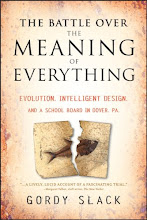 |
| LearningRx , a brain-training center in Upper Montclair, N.J., |
To quote myself from the March 2009 San Francisco Magazine story, Brains of Steel:
[UCSF MD PhD neuroscientist Alison] Doupe describes what happens to the brains of finches that are first taught to sing by tape recorders. "Their songs are OK, and their development seems pretty normal on the surface," says Doupe. "But when you take one of those recorder-trained birds and stick another bird in there singing a live song, the trained bird is highly stimulated and attentive, and his critical period can actually reopen." In other words, when the bird's attention is grabbed by something that matters--in this case another living bird--he's suddenly able to learn new things.Put another way, if students care about what they are being taught, and/or whom they are learning it from, they will be much more likely to get it. And keep it.


No comments:
Post a Comment